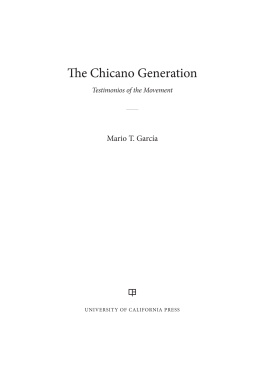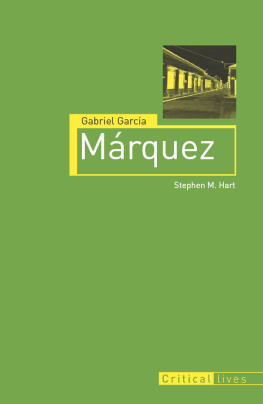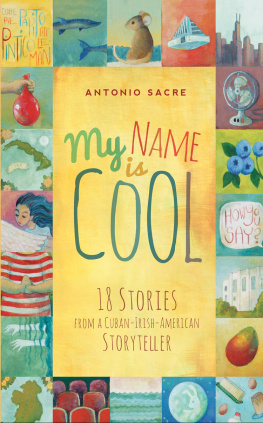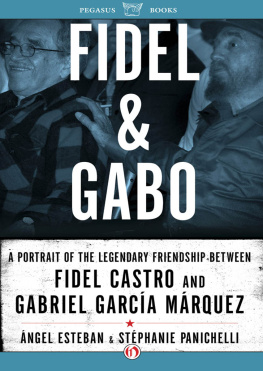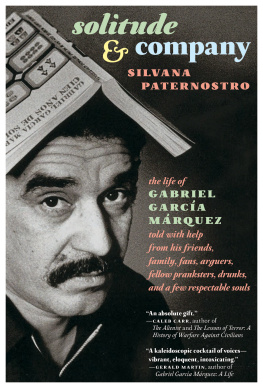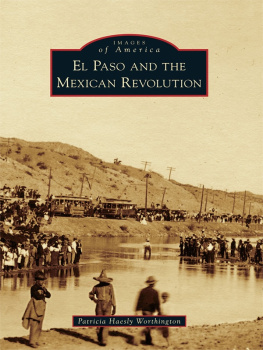2017 by Antonio C. Mrquez
All rights reserved.
Published 2017
Printed in the United States of America
Library of Congress Cataloging-in-Publication Data
Names: Mrquez, Antonio C., 1940 author.
Title: Volver : a persistence of memory / Antonio C. Mrquez.
Description: Albuquerque : University of New Mexico Press, 2017.
Identifiers: LCCN 2016025503 | ISBN 9780826358110 (paperback : alkaline paper) | ISBN 9780826358127 (electronic)
Subjects: LCSH: Mrquez, Antonio C., 1940 | Mexican AmericansBiography. | College teachersNew MexicoAlbuquerqueBiography. | University of New MexicoFacultyBiography. | United States. Marine CorpsBiography. | Political activistsUnited StatesBiography. | Chicano movementHistory20th century. | Social movementsUnited StatesHistory20th century. | El Paso (Tex.)
Biography. | Los Angeles (Calif.)Biography. | BISAC: BIOGRAPHY & AUTOBIOGRAPHY / Personal Memoirs. | SOCIAL SCIENCE / Ethnic Studies / Hispanic American Studies.
Classification: LCC E184.M5 M3566 2017 | DDC 973/.046872dc23
LC record available at https://lccn.loc.gov/2016025503
Cover photograph: Rio Grande El Paso Upper Valley, licensed under CC by 3.o
Designed by Lisa Tremaine
CHAPTER ONE
The Loss of Innocence
The past is indestructible; sooner or later all will return, including the desire to abolish the past.
JORGE LUIS BORGES
Volver. My earliest memory came to me many times at different moments in my life. Against the stunning expanse of blue sky and blue water, I walked hand in hand with my father. It was shortly after the end of World War II, when I was about five or six. An immense flotilla of warships was anchored in Monterey Bay, California. It was an unforgettable sight. I remember little of what was spoken that day; mostly, I recall the sensation of the sea breeze on my face. That feeling and the image of walking by the beach holding my fathers hand shaped a lifelong memory: the comforting strength and security of my fathers hand, and something I would never see or feel again in my lifetime. It is the fondest memory I have of my father. Rambunctious, and impatient with my fathers measured steps, I would break away from his grasp and scamper down the beach, leaving running imprints on the sand. I heard my father calling me: Mijo dont go too far come back I dont want you to get lost. Despite my fathers gentle caution, I would be lost for years. I have tried to find my way back, by tracing the path of memory and measuring what I have lost and what I have gained.
The eddies of history and greater events of human import would crisscross my life. I was born eleven months before the Japanese attack on Pearl Harbor. As the world sank into the greatest bloodbath in human history, I found a source of fun in my solitary childhood. I enjoyed cutting out newspaper photos of the naval battles in the South Pacific; I would cut out pictures of battleships, aerial dogfights, and kamikaze planes slamming into aircraft carriers. It was great fun, then. Later, I would come to know a different story. Two of my uncles and one cousin served in World War II. Uncle Leo died crossing the Arno River in northern Italy as German panzer tanks rained hell and death on the advancing American units. Uncle Al served with the US Marines in the heroic battles of the South Pacific, returned a bitter and violent man, and turned that violence toward his family. Cousin Willie served in the US Navy in the North Atlantic, returned, and joined the army after the war. He was discharged with a medical condition, diagnosed as paranoid schizophrenia, and spent time in a mental institution. The last time I saw my cousin was at my grandparents home, and I was saddened at the sight of Willie incoherently mumbling and jotting notes to himself about people who wanted to kill him and his cat. I dont know what finally happened to Willie; I presume that he spent the last days of his life in some industrial cement institutional building with no windows and without a ray of sunshine to fall on his madness.
But that day in Monterey, the wondrous battleships that I had cut out and pasted into my scrapbook became a shimmering reality. I stood awestruck by the huge chain of gray metal extending to the horizon. I knew that I would carry that image in my mind to the end of my life, but I didnt know then that the comforting pressure of my fathers hand and his solicitude would be short lived.
Whenever I thought of my father, I thought of my grandparents. My fatherPedro Mrquezwas my grandparents favorite of the three children they had, and he was the apple of their eyes (la nia de sus ojos) when he was a child. That affection disappeared in the years to come. When he came into manhood, Pedro would disappoint and eventually break his parents hearts, just as I would a generation later. I inherited my fathers brown eyes and hair but also his deficiency of character, in not making the fullest use of my gifts. What happened between my grandparents generation and my fathers and between my fathers and mine is a story of circumstances, and the truth of the matter is that no one was to blame, for they did the best they could in a world that was changing beyond their comprehension or command.
In 1913 John Reed, the American writer and founder of the American Communist Party, arrived in Mexico and embraced the Revolution. He wrote impassioned dispatches glorifying the Revolution and romanticizing Mexico and its people. For the Mrquez family and thousands of others caught in the chaos and violence, the Revolution was neither heroic nor romantic. The turning point in the Mexican Revolution and the Mrquez family came in 1915. My grandfather, Alejandro Mrquez, had a brother who rode with Pancho Villa, and Alejandro also sided with Villa. He distrusted Villa, but he saw him as the lesser of all existing evils in Mexico at the time; despite his ruthlessness, Villa was closer to the people and better than the pack of jackals that had taken power in Mexico City. April 1915 was the cruelest month. Obregn smashed Villas forces at the two-day Battle of Celaya, the fiercest and costliest battle of the Revolution, and it was the beginning of the end for Villa. The upheaval began. The leading figures of the RevolutionMadero, Obregn, Zapata, and Villawere assassinated. Then there is the history that is seldom recorded. Alejandro and his partner owned and operated a beer and soda water bottling plant in Torren. One day, the partner disappeared with what little money was in the company safe. Alejandro, left penniless, sold whatever was of value in the housefurniture and belongingsand bought train tickets to take his family north. He and his wife, Elodia, with their two childrenDolores and their six-month-old son (my father)got on the train that was part of Villas line of supplies that ran from Torren to Jurez. It was the flight of hundreds of thousands, and I was the end line of a diaspora. My grandfather and grandmother, with Dolores in hand and Pedro in arms, crossed the border at Jurez in June 1915 and started a new life. It was a bright, sunny day when they crossed the Ro Bravo, the name Mexicans gave to the Rio Grande. It cost two cents to cross the Stanton Bridge to the United States; the price of leaving and never returning was immeasurable. They started a new life, trusting that what lay ahead was better than what they had left behind. Later they had a third child, Alejandro Jr., the first native born of the family. My grandparents never learned English and didnt venture beyond the secure enclave of South El Paso. They would live for almost half a century on the border of JurezEl Paso, in a place they called



